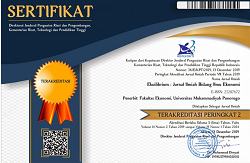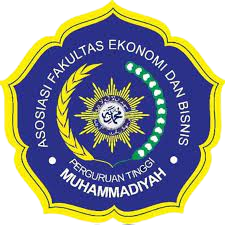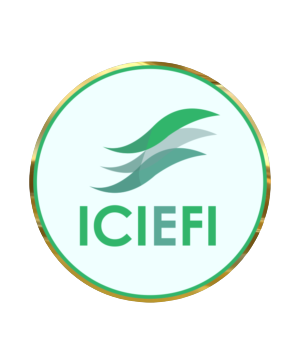The Effect of Interpersonal Trust and Need of Achievement on the Lecturers’ Performance (Study at Universitas Muhammadiyah Ponorogo)
DOI:
https://doi.org/10.24269/ekuilibrium.v15i2.2020.pp188-195Abstract
The study describes the effect of interpersonal trust and need of achievement on the performance of lecturers at Muhammadiyah University of Ponorogo. The results of the path analysis or hypothesis testing show that the effect of interpersonal trust on the lecturers’ performance is 66.8% and the increasing need of achievement also improve the performance of the lecturers at University Muhammadiyah of Ponorogo where the results of the path analysis of need of achievement towards the performance of the lecturers is 8.3%. Even though the variable need of achievement has not significantly affected the performance of the Muhammadiyah University of Ponorogo lecturers which is constructed with indicators of working hard, like challenging work, and setting goals. In addition, the contribution of Interpersonal trust and need of achievement to performance was 53.4%. Therefore it can be concluded that the performance variable is explained by Interpersonal trust and need of achievement is 53.4% while the rest is influenced by other variables which not included in this study.
References
Amelia, R. (2009). Pengaruh Motivasi Berprestasi terhadap Kinerja Perawat dalam Asuhan Keperawatan Pasien Gangguan Jiwa di Rumah Sakit Jiwa Daerah Provinsi Sumatera Utara, Medan. Majalah Kedokteran Nusantara. 42: 8-13.
Bakiev, E. (2013). "The Influence of Interpersonal Trust and Organizational Commitment on Perceived Organizational Performance." Journal of Applied Economics and Business Research 3(3): 166-180.
Daley, D. M. (1991). Practice and the uninvolved manager : The effect of supervisory attitudes on perceptions of organizational trust and change orientation, public personal management
Deshpande, R., A. Grinstein, et al. (2013). "Achievement motivation, strategic orientations and business performance in entrepreneurial firms." International Marketing Review 30 (3): 231-253.
Erlan, B. (2013). "The Influence of Interpersonal Trust and Organizational Commitment on Perceived Organizational Performance." Journal of Applied Economics and Business Research 3(3): 166-180.
Flippo, E. (2000). Personel Management. New York, Mc Graw Hill.
Ghafoor, M., S. A. Gillani, et al. (2013). "The impact of employee empowerment on achievement motivation and contextual performance of employee: A Case Banking Sector In Pakistan. ." Far East Journal of Psychology and Business 13(1): 42-50.
Gomes, D. R., V. Asseiro, et al. (2013). "Triggering Employee Motivation in Adverse Organizational Contexts: “Going the Extra Mile†while Holding Hands with Uncertainty?" Business and Management Research 2 (1): 41-54.
Hasibuan. (2005). Manajemen Sumber Daya Manusia. Jakarta, Bumi Aksara.
Karsudjono, A. J., B. Christiananta, et al. (2013). "The influence of leader self-mastery, leader personality and Leader personal branding on achievement motivation and Leader candidate performance: A study at PT. Mangium Anugerah Lestari, Kotabaru Regency, South Kalimantan." Social Sciences and Humanities 4(4): 627-640.
Kiruja, E. and M. Elegwa (2013). "Effect of Motivation on Employee Performance In Public Middle Level Technical Training Institutions In Kenya." International Journal of Advances in Management and Economics. 2(4): 73-82.
Masoodul, H., V. T. Nilüfer, et al. (2012). "Interpersonal Trust and Its Role in Organizations." International Business Research 5 (8): 33-39.
Mathis, R. L. and J. H. Jackson (2001). Manajemen Sumber Daya Manusia. Jakarta, PT. Selemba Emban Patria.
Olawepo, G. T., O. E. Ofoegbu, et al. (2013). "The connectivity between motivation and employees’ Performance in marketing oriented organizations in Nigeria." International Journal of Education and Research Vol. 1 (No. 3): 1-14.
Popoola., S. O. and Olalude.F.O. (2013). "Work Values, Achievement Motivation and Technostress as Determinants of Job Burnout among Library Personnel in Automated Federal University Libraries in Nigeria." Library Philosophy and Practice (e-journal). 3(15): 1-32.
Robbins, S. P. (2001). Organizational Behavior. New Jersey 07458, Prentice Hall International.
Sandhu.S.S (2014). "Academic achievement of adolescents in relation to Achievement motivation and study habits." International Multidisciplinary Research Journal 11 (1): 1-10.
Siddiqui.Z.U (2013). "Effect of Achievement Motivation and Gender on Spiritual Intelligence." Educationia Confab 2(6): 36-42.
Sinambela, L. P., S. Rochadi, et al. (2007). Reformasi Pelayanan Publik. Jakarta, PT. Bumi Aksara.
Singh, K. (2011). "Study of Achievement Motivation in Relation to Academic Achievement of Students." International Journal of Educational Planning & Administration. 1(2): pp. 161-171.
Six, F. (2007). "Trust building actions: a relational signalling approach." J Manage Governance (11): 285-309.
Sobur, A. (2003). Psikologi Umum. Bandung, Pustaka Setia.
Tutar, H. and M. Altinoz (2011). "The effects of employee empowerment on achievement motivation and the contextual performance of employees." African Journal of Business Management 5(15): 6318-6329.
Thoms, P., J. J. Dose, et al. (2001). "Relationships between Accountability, Job Satisfaction, and Trust. ."Human Resource Development Quarterly 13 (3): 307-323
Wardana, D. S. (2013). "Motivasi Berprestasi Dengan Kinerja Guru Yang Sudah Disertifikasi" Jurnal Ilmiah Psikologi Terapan 1(1): 97-107.
Downloads
Published
How to Cite
Issue
Section
License
Retained Rights/Terms and Conditions of Publication
1. As an author you (or your employer or institution) may do the following:
- make copies (print or electronic) of the article for your own personal use, including for your own classroom teaching use;
- make copies and distribute such copies (including through e-mail) of the article to research colleagues, for the personal use by such colleagues (but not commercially or systematically, e.g. via an e-mail list or list server);
- present the article at a meeting or conference and to distribute copies of the article to the delegates attending such meeting;
- for your employer, if the article is a ‘work for hire’, made within the scope of your employment, your employer may use all or part of the information in the article for other intra-company use (e.g. training);
- retain patent and trademark rights and rights to any process, procedure, or article of manufacture described in the article;
- include the article in full or in part in a thesis or dissertation (provided that this is not to be published commercially);
- use the article or any part thereof in a printed compilation of your works, such as collected writings or lecture notes (subsequent to publication of the article in the journal); and prepare other derivative works, to extend the article into book-length form, or to otherwise re-use portions or excerpts in other works, with full acknowledgement of its original publication in the journal;
- may reproduce or authorize others to reproduce the article, material extracted from the article, or derivative works for the author's personal use or for company use, provided that the source and the copyright notice are indicated, the copies are not used in any way that implies RCEPM-LIPI endorsement of a product or service of any employer, and the copies themselves are not offered for sale.
All copies, print or electronic, or other use of the paper or article must include the appropriate bibliographic citation for the article's publication in the journal.
2. Requests from third parties
Although authors are permitted to re-use all or portions of the article in other works, this does not include granting third-party requests for reprinting, republishing, or other types of re-use. Requests for all uses not included above, including the authorization of third parties to reproduce or otherwise use all or part of the article.
3. Author Online Use
- Personal Servers. Authors and/or their employers shall have the right to post the accepted version of articles pre-print version of the article, or revised personal version of the final text of the article (to reflect changes made in the peer review and editing process) on their own personal servers or the servers of their institutions or employers without permission from Universitas Muhamamdiyah Ponorogo, provided that the posted version includes a prominently displayed Universitas Muhamamdiyah Ponorogo copyright notice and, when published, a full citation to the original publication, including a link to the article abstract in the journal homepage. Authors shall not post the final, published versions of their papers;
- Classroom or Internal Training Use. An author is expressly permitted to post any portion of the accepted version of his/her own articles on the author's personal web site or the servers of the author's institution or company in connection with the author's teaching, training, or work responsibilities, provided that the appropriate copyright, credit, and reuse notices appear prominently with the posted material. Examples of permitted uses are lecture materials, course packs, e-reserves, conference presentations, or in-house training courses;
- Electronic Preprints. Before submitting an article to an Ekuilibrium: Jurnal Ilmiah Bidang Ilmu Ekonomi, authors frequently post their manuscripts to their own web site, their employer's site, or to another server that invites constructive comment from colleagues. Upon submission of an article to Ekuilibrium: Jurnal Ilmiah Bidang Ilmu Ekonomi, an author is required to transfer copyright in the article to Economy Faculty Universitas Muhammadiyah Ponorogo, and the author must update any previously posted version of the article with a prominently displayed Economy Faculty Universitas Muhammadiyah Ponorogo copyright notice. Upon publication of an article by the Universitas Muhammadiyah Ponorogo, the author must replace any previously posted electronic versions of the article with either (1) the full citation to the work with a Digital Object Identifier (DOI) or link to the article abstract in Ekuilibrium: Jurnal Ilmiah Bidang Ilmu Ekonomi journal homepage, or (2) the accepted version only (not the final, published version), including the Economy Faculty Universitas Muhammadiyah Ponorogo copyright notice and full citation, with a link to the final, published article in journal homepage.
4. Articles in Press (AiP) service
Economy Faculty Universitas Muhammadiyah Ponorogo may choose to publish an abstract or portions of the paper before we publish it in the journal. Please contact our Production department immediately if you do not want us to make any such prior publication for any reason, including disclosure of a patentable invention.
5. Author/Employer Rights
If you are employed and prepared the article on a subject within the scope of your employment, the copyright in the article belongs to your employer as a work-for-hire. In that case, Economy Faculty Universitas Muhammadiyah Ponorogo assumes that when you sign this Form, you are authorized to do so by your employer and that your employer has consented to the transfer of copyright, to the representation and warranty of publication rights, and to all other terms and conditions of this Form. If such authorization and consent has not been given to you, an authorized representative of your employer should sign this Form as the Author.
6. RCEPM-LIPI Copyright Ownership
It is the formal policy of Economy Faculty Universitas Muhammadiyah Ponorogo to own the copyrights to all copyrightable material in its technical publications and to the individual contributions contained therein, in order to protect the interests of the Economy Faculty Universitas Muhammadiyah Ponorogo, its authors and their employers, and, at the same time, to facilitate the appropriate re-use of this material by others. Economy Faculty Universitas Muhammadiyah Ponorogo distributes its technical publications throughout the world and does so by various means such as hard copy, microfiche, microfilm, and electronic media. It also abstracts and may translate its publications, and articles contained therein, for inclusion in various compendiums, collective works, databases and similar publication.
7. Licensing Terms
Ekuilibrium is licensed under a Creative Commons Attribution-ShareAlike 4.0 International License.
Permissions beyond the scope of this license may be available at https://journal.umpo.ac.id/













